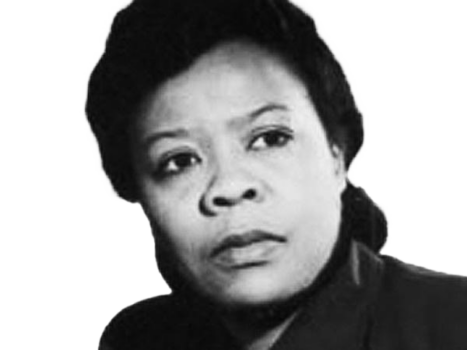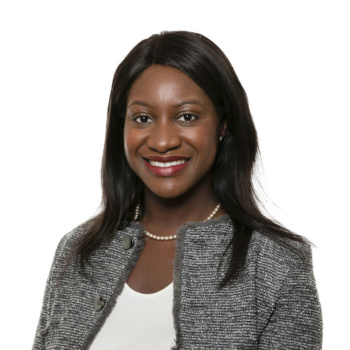The theme for 2023 Black History Month is saluting our sisters. Throughout the month our colleagues have reflected on inspirational black women, as well as personal celebrations of the numerous people who made the journey to the United Kingdom.
What is Windrush and who are the Windrush generation?
To those who answered the call
This year marks the 75th anniversary of Windrush in the UK. My grandmother was born in Jamaica. Although not a passenger on the HMT Empire Windrush, she, like thousands of others, was part of the ‘Windrush Generation’. Part of the many faces and stories of Caribbeans who travelled from islands of Jamaica, Trinidad, St Lucia, Grenada, Barbados, Bermuda, British Guiana and more to the UK.
The 1948 Act, which came into force in 1949, gave people born or naturalised in the UK or one of the British colonies the status of “citizen of the United Kingdom and Colonies” (CUKC). This means that individuals born in the British colonies had the right to live and work in Britain as British Subjects. The Act was drawn up as the government needed workers to help fill post-War labour shortages and rebuild the UK economy. ‘Windrush Generation’ is a name given to travellers that arrived in the UK between June 21, 1948, and 1971 on the HMT Empire Windrush at Tilbury, Essex.
If you head to London Waterloo Station, you can see the National Windrush Monument. Unveiled in 2022, it commemorates British West Indian immigrants that came to the UK on the Windrush. The poem “You called… and we came” by Prof. Laura Serrant OBE, written in October 2017 accompanies the sculpture. It was written to reflect, recognise and celebrate the contributions made by black nurses to the health system of England post-World War 2.
Which black woman inspires you, and why?
Afua Kyei
Image credit: Bank of England via Flickr
Working in the finance sector, a person that inspires me is Afua Kyei, Director and the Chief Financial Officer of the Bank of England. Who assumed the role of CFO back in 2019 and made history as the first black senior executive in the Bank of England’s 329 year history.
Afua Kyei was awarded CFO of the Year 2021 by the Women in Finance Awards UK and was named in the Powerlist 2023 ‘100 most influential Britons of black heritage’ and the ‘2023 list of 100 Most Reputable Africans’ by Reputation Poll International. Before joining the Bank of England, Afua Kyei, graduated from Oxford University, qualified as a Chartered Accountant, and worked at Ernst and Young, UBS and Barclays. Afua will inspire many generations to come and has become a truly influential person to many young people across the world.
Fatima Adil, Finance Assistant
Gina Miller

Image credit: Jem Collins via Flickr
Gina Miller is a black woman that really inspires me. A successful British businesswoman of Guyanese descent, she was named in 2017 as the UK’s ‘most influential black person’ by Powerlist. She most famously led the successful challenge against the UK government’s decision to invoke ‘Article 50’ and leave the EU without the consent of Parliament Funding the challenge herself. Miller did so simply to stand up for a parliamentary democracy and the rule of law, and in doing so, faced physical and racist abuse, but never deviated from her principles. She similarly repeated this in the successful legal proceedings against the unlawful closure of Parliament by the government in 2019, and has thus become an important black female figure in the recent constitutional history of the United Kingdom.
Kaveh Cope-Lahooti, Principal Consultant, Data Protection
Mariama Kamara

Image credit: Mariama Kamara
Smiling Through Light is an initiative developed by Mariama Kamara, with a primary focus on clean energy access combined with women’s empowerment. The initiative collaborates with a network of local women to provide clean, reliable, and sustainable energy in Sierra Leone. This is achieved through the distribution and sale of solar products, with a special emphasis on reaching the ‘last mile’: creating employment and income opportunities.
Mariama Kamara initiated this project after a visit to Sierra Leone, her childhood home, in 2011. She has always been deeply interested in development issues, particularly poverty, energy, education, sexual and reproductive health, and HIV-related matters concerning women and young people. Mariama has worked with organizations such as SciDev.Net, the African Health Policy Network, VSO, DFID, SIDA, the African Development Association for Progress, Restless Development, the UN, and Africa UK.
The inspiration for this initiative comes from Mariama‘s personal experience, as she explains, “When I was a young girl growing up in Sierra Leone, I studied by a kerosene lamp at night. The effect that this had has stayed with me throughout my life. It is why I believe in the importance of sustainable energy and the need to work in collaboration with different organizations to ensure that individuals have the opportunity to access relevant energy sources, particularly solar.”
Sahajleen Kaur, Economic Analyst
Marie Van Brittan Brown

Image credit: Wikimedia
Marie Van Brittan Brown, of Jamaica, Queens, New York is known for creating the first home security system alongside her husband Albert L Brown. They filed the first patent for a Home security system utilising television surveillance in 1966 and it was approved in 1969.
Marie, a nurse, and her husband, an electronics technician, wanted to have some extra security at home as they worked irregular shifts and were concerned with the rising rates of crime. This led them to creating the first home security system.
It consisted of four peepholes, a sliding camera, two-way microphones, television monitor, a remote to open the door and an alarm button that contacted the police. The system was the first of its kind and laid the foundation for modern security systems.
Fatima Adil, Finance Assistant


